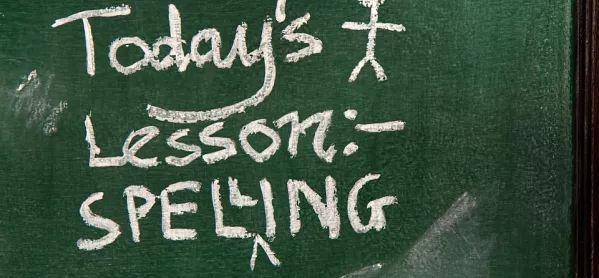If there’s one thing that children expect from their teachers, it’s accuracy. The children in one of my daughter’s classes were even prepared to forgive the teacher who wrote “spell sulphuric acid” up on the board, because at least she’d spelled it correctly herself.
They were less forgiving when she told them to wait for an explanation of what “titration” means until the lesson’s end, because they knew she didn’t really know herself and was going to rely on the last slide, in a presentation she’d downloaded from some other source and which she had probably not even looked at before delivering her lesson.
That is the sharp end of a deeper problem. The lack of scholarship in a whole range of bodies and structures that support schools is getting out of control. So I’m not surprised when I see exam boards being challenged about the quality of their assessments, or national exam papers released by accident. It’s symptomatic of a much wider lack of academic rigour and effort, much of it driven by the way technology has allowed quick and easy publication without any kind of peer review or editing process.
Lack of scholarship
Recently, I was asked to look at some CPD materials created by a number of teaching schools. Some - not all - contained academic references consisting of an author’s name only, or sometimes a name and a publication. Hardly any contained the kind of precise referencing you would expect even from an undergraduate.
I noticed this lack of scholarship several years ago, and the specific example that follows is taken from a presentation I gave at a conference in 2011. The fact that the example I chose then continues to be cited widely proves my point. If children expect accuracy from their teachers, it follows teachers should expect it from colleagues and especially from people purporting to support, advise or lead them.
The Shift Happens video was originally created by an American, Karl Fisch, in 2006. It has been translated into many different languages, redesigned by commercial companies and shown all over the world at educational events, and is repeatedly proffered as being, in some way, educationally significant. Fisch’s version available on YouTube now lists 5,727,714 views.
The presentation adopts an unapologetically utilitarian stance and hysterical tone, using statistics about the size of China and India and numerous predictions about the expansion of computing power to frighten its audience into thinking that technology is changing the world inestimably and that, as teachers, they must embrace technology to equip children for this new future.
‘Can’t verify’
Of the various figures quoted in Shift Happens, most were sourced from blogs or other web presentations, and were wholly unverifiable. In the source document which accompanied the presentation on Karl Fisch’s own website, the phrases “don’t know”, “can’t verify”, “couldn’t verify” and “presumably” occurred 11 times. There are 48 statistics or predictions made in the complete presentation.
The few references to books gave no page numbers, but sent the user to Amazon’s main publicity page for the book concerned. Of the 22 URL citations to what Fisch referred to as “my source”, 11 no longer functioned and 10 of these were to the same presentation by one individual.
Of the 13 URL citations Fisch referred to as “original source”, three no longer functioned, two sent the user to Amazon’s main publicity page for the book concerned, and three were to online magazine articles. The rest were to wholly untrustworthy presentations or blogs. If a GCSE or A-level student had produced this presentation for homework, there isn’t a professional teacher worth the job title who wouldn’t have simply asked them to redo it.
Hysterical claims
Fisch’s slides say far more about this widespread lack of scholarship than they do about the challenges teachers face worldwide. For the original presentation, he used powerful and evocative music from the soundtrack to the movie version of The Last of the Mohicans, no longer available from Fisch’s website (presumably because of copyright infringement), and a steady, rhythmical cutting from slide to slide that Sergei Eisenstein would have been proud to own as a fine example of the potency of rhythmic montage.
Any serious scholar would have immediately looked at the various hysterical claims made on the slides and challenged their accuracy. That so few did, or still do, seems to suggest, together with accidentally released exam papers, that in the educational world at least, Shift does indeed happen.
Joe Nutt is an educational consultant and author
Want to keep up with the latest education news and opinion? Follow TES on Twitter and like TES on Facebook




